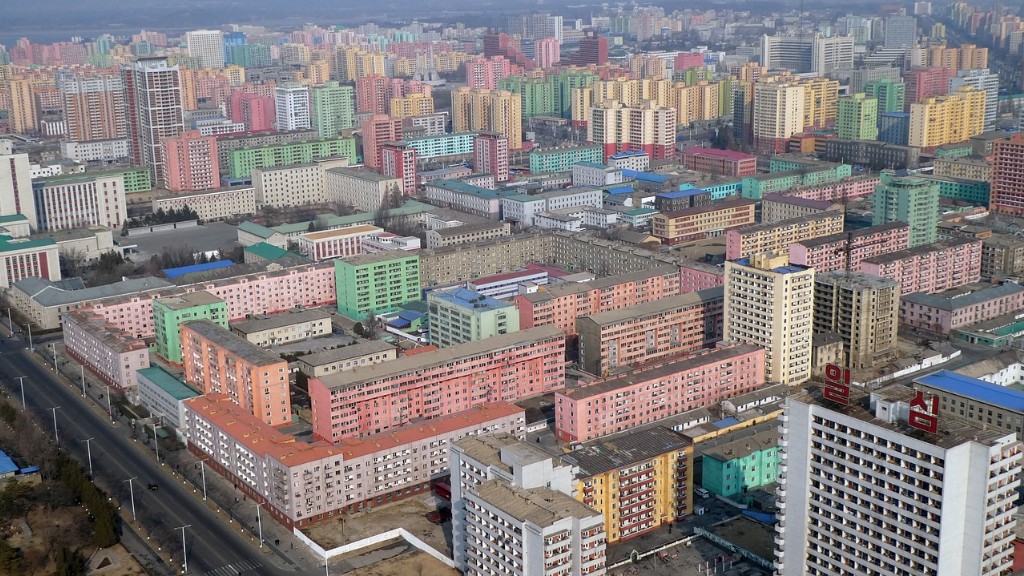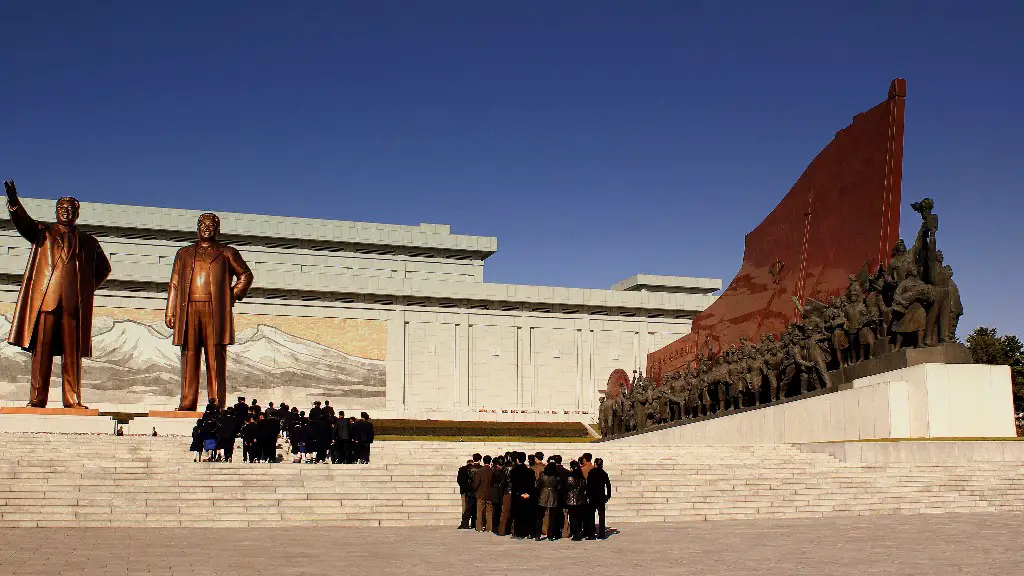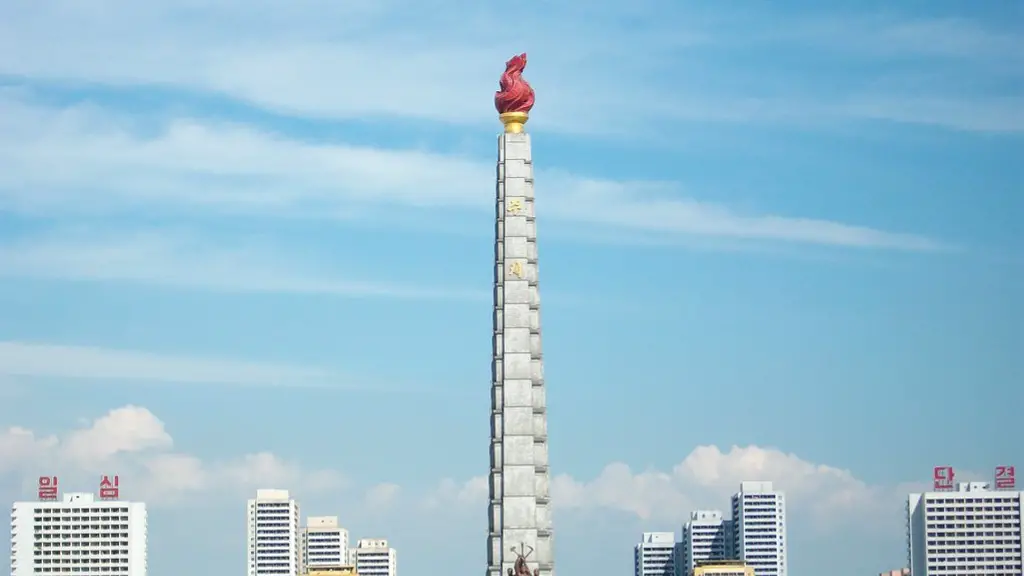The world has been looking on with trepidation as the United States and North Korea exchange threats of nuclear war. There are those who are asking, “Will the US really launch a nuclear attack against North Korea?” While there is no simple answer to that question, what is certain is that the prospect of such an attack is one of the gravest dangers that the global community faces.
The US and North Korea have been engaged in an on-again, off-again stand-off since the end of the Korean War in 1953. This tension has only been escalating since 2003, when North Korea began developing its nuclear weapons program. In the years since then, the US has imposed a series of economic sanctions against North Korea in an effort to limit its nuclear ambitions.
However, US President Donald Trump has adopted an aggressively confrontational attitude towards North Korea since taking office. He has threatened “fire and fury” if North Korea does not cease its nuclear program, and proposed more severe economic sanctions.
The escalating tensions between the two nations have brought many experts to the conclusion that war is inevitable. However, the prospect of nuclear war has put many nations on edge and raised questions about the potential consequences of such an attack.
The most pressing concern is the potential for massive civilian casualties on both sides. Even if the attack is limited to military targets, there is still the risk of radioactive material being released into the atmosphere, which could have devastating consequences for the surrounding regions.
These risks are heightened by North Korea’s unique political situation. It is a totalitarian state, and its leader, Kim Jong Un, is unpredictable and has a long history of disregarding international law and norms. This raises the possibility of what is known as a “madman” scenario in which North Korea launches a nuclear strike in response to a US attack.
In such a scenario, it is almost certain that civilian casualties would be in the millions. This is a grim prospect and it highlights the need to avoid conflict with North Korea at all costs.
International Condemnation
The prospect of nuclear war between the US and North Korea has been widely condemned internationally. Both the United Nations Security Council and the International Atomic Energy Agency have been vocal in their opposition to any sort of attack.
Moreover, many prominent international figures, including former US President Barack Obama and UN Secretary General Ban Ki-moon, have urged both sides to seek a diplomatic solution to the crisis. Unfortunately, the disagreements between the two sides have been too deep for any sort of compromise to be reached.
At the same time, former US Secretary of State Hillary Clinton has argued that a preemptive US strike could fuel an even larger conflict in the region. This is a risk that the US should be wary of, as it could draw North Korea’s allies (China and Russia) into the conflict and potentially lead to a nuclear exchange.
The international community has also raised concerns about the potential implications of a US attack on North Korea. In particular, the escalation of tensions in the region could have significant long-term consequences for global security.
US Allies
The US is not alone in its confrontation with North Korea. Its allies, such as Japan and South Korea, are also involved in the stand-off. Both countries have expressed support for the US’ hard-line stance on the issue, and both have urged the international community to take action against North Korea.
Moreover, both countries have bolstered their defense capabilities in anticipation of a possible attack from North Korea. This has included the deployment of US troops and missile defense systems, as well as the establishment of an early warning system to detect a North Korean missile launch.
However, the US’ allies have also raised questions about the wisdom of a military strike against North Korea. They point out that any effort to contain North Korea must take into account the potential consequences of a conflict, particularly in terms of civilian casualties.
The US’ allies have also argued that a diplomatic approach could be more effective in resolving the crisis. They have proposed a gradual reduction of tensions through negotiations, as well as a loosening of economic sanctions against North Korea.
Regional Reactions
Neighboring states have also taken a keen interest in the situation, as any conflict between the US and North Korea could have direct implications for their security. For example, China has made it clear that it does not want to see an escalation of tensions on the Korean peninsula and has urged both sides to find a peaceful solution.
Russia has also expressed concern about the potential consequences of US action against North Korea. It has pointed to the potential for destabilizing the region, as well as the possible use of nuclear weapons, as reasons to avoid a conflict.
These regional states have also warned that a military strike against North Korea could spark a regional conflict that could draw in China, Japan, and South Korea. This could have devastating consequences for the region, and it is a risk that the US and its allies must take into account.
Solutions
The US and North Korea have been locked in an escalating stand-off for almost 15 years and both sides appear to be unwilling to compromise. The consequences of a conflict are disastrous, both for the region and for the world. The only way to avoid such a conflict is for both sides to step back and seek a diplomatic solution.
There have been some recent signs of progress, such as North Korea’s agreement to stop its nuclear tests and the US’ and South Korea’s pledge to suspend joint military exercises. However, both sides must be willing to make further concessions in order to find a lasting solution.
Experts have argued that an effective solution must involve some degree of compromise on both sides, as well as some form of international verification of North Korea’s nuclear capabilities. This is a difficult but necessary step to ensure the security of the region and the world.
Role of China and Russia
The role of China and Russia is also critical in finding a solution to the crisis. China is North Korea’s only ally and its economic lifeline, and it holds significant influence over the country. At the same time, Russia is a major player in the region and can also pressure North Korea to scale back its nuclear ambitions.
Both countries have expressed their support for diplomatic solutions to the crisis, and there has been a recent warming of relations between them and the US. This suggests that there may be a growing international consensus on the need to resolve the issue peacefully.
At the same time, both China and Russia have cautioned the US against taking any military action against North Korea. They have urged the US to pursue a diplomatic solution, and they have warned that any military action could have catastrophic consequences.
Prospect of War
The prospect of war between the US and North Korea remains a very real possibility. While the US has so far avoided taking any substantive action against North Korea, the threat of nuclear conflict is still looming. It is a real danger to global security and it must be avoided at all costs.
The international community must come together to find a peaceful solution to the crisis. This will require difficult compromises and will involve all of the major actors in the region. In the end, it is the only way to avoid the disastrous consequences of a conflict.
US Policy
The US policy towards North Korea has been clear: it will not accept a nuclear-armed North Korea. However, there has been less clarity about the US’ plans for dealing with the situation. President Trump has made it clear that the US is not ruling out military action, but many have expressed concern about the potential consequences.
The US must explore all options to resolve this crisis peacefully. It must pursue negotiations with North Korea and seek a compromise that will satisfy both sides. Moreover, the US must take into account the potential implications of its actions not only for itself, but for the entire region.
Implications
The crisis between the US and North Korea has implications not only for the two countries involved, but for the entire world. It has sparked a debate about the legitimacy of nuclear weapons and the use of military force in international affairs.
The US and North Korea have been locked in an escalating stand-off for almost 15 years, and it is a situation that threatens to spiral out of control. It is a grave danger to global security and it must be resolved. The only way to do this is through diplomatic negotiations and a mutual agreement to de-escalate tensions.
This crisis also highlights the need for the international community to work together to ensure global security. It is only through collective action that the world can hope to avoid the catastrophic consequences of nuclear war.





